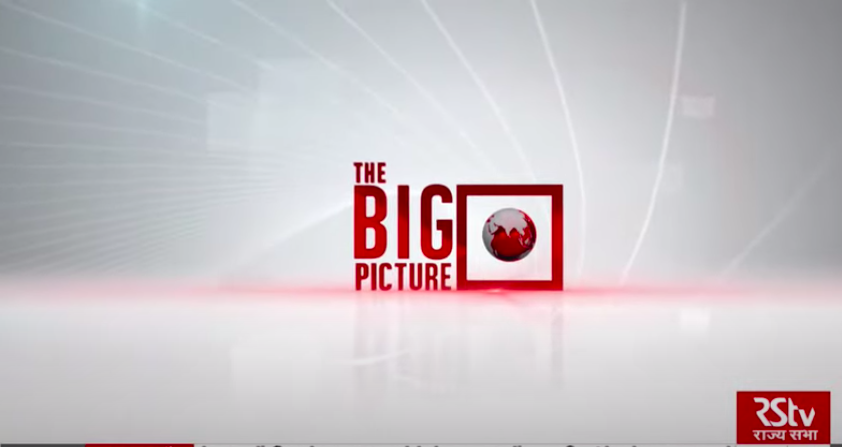Rajya Sabha TV programs and discussions are very insightful and informative from a UPSC perspective. In this article, we provide a gist of the RSTV Big Picture debate on India’s space transportation policy. This topic is important for the science & technology section under the UPSC syllabus.

Space Transportation Policy:- Download PDF Here
Anchor:- Vishal Dahiya
Participants:
- Srinath Ravichandran, Co-Founder & CEO, AgniKul Cosmos
- Gp Capt. (Retd.) Ajey Lele, Senior Fellow, MPIDSA
Context:
The Department of Space recently came out with the Draft National Space Transportation Policy-2020 – Norms, Guidelines & Procedures which provide a technological & regulatory framework for the space transport sector.
Space Transportation in India
Space transportation systems, comprising various classes of launch vehicles, provide assured and reliable access to space for building space infrastructure that allows India to explore opportunities, not only for national needs but also for participation in global opportunities. In addition to sustaining and augmenting the national space infrastructure consisting of earth observation satellites, communication satellites, navigational satellites, and satellites for space science & exploration, Indian space transportation systems also enable the commercial exploitation of increasing opportunities for launch services as well as human spaceflight to near-earth orbit and robotic space exploration.
The recent reforms announced by the Government towards unlocking the potential of the space sector in the country are expected to attract entrepreneurs to invest in cost-effective and quick turn-around space transportation systems commensurate with the significant global commercial launch services market being projected for small satellites.
The Indian space transportation sector is witnessing the emergence of new players in the private sector who in order to tap the commercial potential of small satellite launch services, are eager to leverage the national facilities already established by the Government. Sustaining independent access to space and the continuous evolution of space transportation capabilities towards human and robotic space exploration along with the commercial exploitation of global opportunities require a robust national space transportation policy aimed at promoting & fostering national capabilities in the development of end-to-end space transportation systems and strengthening of Public-Private Partnerships.
Check the following table for important links to India’s satellite launch programs:
| Satellite Launch Vehicle Program | GSLV Mark III |
| Reusable Launch Vehicle – Technology Demonstrator (RLV – TD) | Indian National Space Promotion and Authorisation Centre (IN-SPACe) |
National Space Transportation Policy 2020
The policy primarily involves the creation of a fertile environment within the country for Indian entities to develop launch vehicles and launch them from the Indian Territory within the framework of international treaties and safety regulations.
- The policy seeks to provide opportunities for Indian entities to capture a share of the global launch services market while allowing the Government agencies to accelerate focused R&D to build space transportation capabilities for future space endeavours along with commercial exploitation.
- The establishment of space enterprises has the potential to boost the economy by creating direct & indirect employment.
- Promote and foster an environment within the country for Indian entities to develop capability and capacity in space transportation systems.
- Enable the commercial utilization of the launch capacity and space transportation technologies developed by the Department through its commercial arm.
- Focus on advanced research & technology development towards improving access to space and supporting human/robotic space exploration.
- Engage in mutually beneficial partnerships with international space agencies/technology providers towards the joint development of advanced space transportation capabilities.
The policy is in a draft stage and has invited consultations from various stakeholders. Some of the suggestions that could be added to the draft are as follows:
- More foreign collaborations and FDI in space manufacturing should be looked into.
- We need to promote local entrepreneurship on the lines of SpaceX which recently launched its Starlink program.
- Newer funding avenues should be tapped into by means of the bond market, PPP models, etc.
- An ecosystem for holistic growth needs to be provided which requires reforms in other sectors too like electronics, robotics, etc. We need to create local manufacturing capabilities in semiconductors and chips in the face of the present chips famine.
- A conclusive discussion needs to be present on emerging topics like the militarization of space, interorbital tourism, etc.
- The safety guidelines regarding the protection of on-ground infrastructure need to be looked into.
- Single window clearances as a part of the Ease of doing business in the space sector should be initiated.
- Compulsory requirement norms from MSMEs could boost the manufacturing base of our economy.
This draft is the right step towards ISRO’s vision of “Harnessing space technology for national development” and will propel the Space sector to even greater heights.
Read all the RSTV articles in the link.
| Related Links | |||
| UPSC Mains Exam | Government Exams | ||
| Space Centres & Indian Space Agencies |
NASA and Axiom Space – Ax-1 Mission |
||
| ISRO’s Earth Observing Satellite |
Aditya L1 Mission |
||
Comments